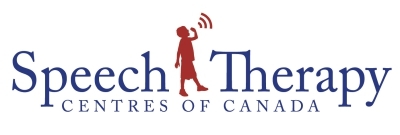If you know what to expect before your child’s first speech and language assessment, it is a good idea to prepare and make the most out of the session.
During the Speech-Language Pathology (S-LP) assessment, testing will take place and the parent will be interviewed. Assessments, including the time involved, will vary depending on the child’s age and needs, but assessments will typically be in this two part format. The testing portion can be done formally, or informally depending the communication issue and the age of the child.
Depending on the communication issue areas that may be assessed include:
- How your child communicates (pronunciation, voice, fluency)
- Language expression (what they say – vocabulary, grammar, sentence structure)
- Language comprehension (what they understand)
- Play and social communication skills (how they communicate – body language, eye contact, greetings etc.)
- For older children, Speech-Language Pathologists may also assess reading and writing skills.
Parent Interview
- Review Family Questionnaire
- Discuss concerns with parents
- Gives child time to warm up to S-LP
- Gives parent a chance to create a more complete picture of the issues
During the parent interview, the questionnaire will be reviewed by the S-LP. This time is also used to talk with the S-LP about any concerns you have about your child. This lets you build a more complete picture of your child’s difficulties allowing the S-LP to better tailor therapy to the needs of your child. Another great part about having the beginning of the session focused on the parents is that the child gets a chance to warm up to the S-LP.
As parents, your impressions and opinions about your child’s communication issues are a very important part of the whole assessment process.
Testing
For children under 3.5 years old:
- Testing is done through fun play-based activities (usually floor or table -top based)
- Parent or caregiver may be invited to be part of the activity
Younger children will be assessed while taking part in play-based activities. These activities will be fun for your child and are usually things that can be done on the floor or a tabletop. The parent or caregiver may be invited to join the S-LP and child in these activities. The S-LP will determine whether formal (more structured) and/or informal testing is required.
For older children:
- Testing may be more structured
- Child will be encouraged to answer questions, follow directions, or copy communication made by S-LP
An older child’s assessment is more structured. Older children can be asked to answer some questions (both verbally and non-verbally – pointing), follow a set of directions, or copy communication made by the S-LP.
Following the Assessment:
- Parent will be given information about child’s speech and language skills
- Next steps will be discussed
After the assessment is completed, you will be given an overview of your child’s speech and language skills. This may be given at the time of the assessment or several days later, as the S-LP may require some time to gather the information in order to develop goals and a speech therapy treatment plan. The S-LP will discuss what next steps should be taken. You will then receive a written report a few weeks later.
What the report includes:
- Summary of findings of the assessment
- Recommendations
- Goals to target
Please visit our website for more information at The Speech Therapy Centres of Canada.
Jeanette Podolsky BA (Speech and Hearing Therapy) Wits. Reg. CASLPO
Clinical Director
Speech Therapy Centres of Canada
